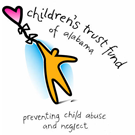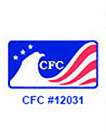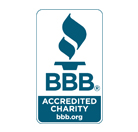Sextortion Prevention Video Series
The U.S. Attorney’s Office and the National Children’s Advocacy Center (NCAC) have partnered to release a digital series to educate parents and caretakers about sextortion and how they can help prevent kids and teens from being victims.
This series offers three-to-five-minute videos about current online safety topics and provides essential information about the true dangers of online activities. Presenters from individuals familiar with sextortion and the impact on victims share diverse strategies and resources parents and caregivers can use to protect their children. The presenters will include leaders from multiple federal, state, and local agencies. Parents will learn how to start the dialog about sextortion with their child, as well as how to best respond to a child who comes forward to report sextortion. Parents will be informed who to reach out to for help if their child has potentially been affected by sextortion and/or online child sexual abuse and we will explore potential mental health repercussions and what to do if kids need help.
Video Release Schedule
A new video will be released every Monday in April. As videos go live, they will be linked to this page and the NCAC YouTube Page.
Monday, April 1 – U.S. Attorney Prim Escalona, Sextortion and the Internet
Monday, April 8 – USAA Deputy Director Trisha Mellberg Cater, Sextortion and Cyberbullying
Monday, April 22 – ANCAC Executive Director Lynn Bius, Sextortion and the Suicide Risk
Monday, April 29 – NCAC CEO Chris Newlin, Sextortion and Youth Vulnerabilities
Preventing Sextortion
Anyone can become a victim. The Northern District of Alabama and the National Children’s Advocacy Center strive to safeguard all children. To help protect your children from online predators, we encourage parents to:
- Tell your children to avoid communicating with strangers online.
- Explain to your children that sometimes predators will offer them gifts in exchange for them taking and sending sexually explicit images or videos. Sometimes, the predators will make threats. Parents should explain to their children that these are strategies abusers use to get what they want, and if this happens, to not feel guilty and immediately tell a parent or other adult.
- To the extent possible, educate yourself about the internet tools your children use. For example, set up your child’s specific profile on cellphones, iPads, and computer devices to limit the websites and content your child can access, and have a weekly “usage” sheet sent to you for that profile. Make sure your children use privacy settings to restrict access to their online profiles.
- Check your children’s social media and gaming profiles and posts. Talk to your children about what is appropriate to say or share.
- Remind your child the world can see what they publicly post on the internet, people can share those posts, and that images can never be fully erased.
More Resources
- National Center for Missing and Exploited Children: www.missingkids.org
- National Center for Missing and Exploited Children
- Free Internet safety information: Netsmartz: www.missingkids.org/netsmartz/home
- Common Sense Media: www.commonsensemedia.org
- Connect Safely: www.connectsafely.org
- Cyberwise: www.cyberwise.org
- Crimes against Children Research Center (University of New Hampshire): https://www.unh.edu/ccrc/
- Family Online Safety Institute: https://www.fosi.org/
- Alabama Department of Child Abuse and Neglect Prevention/Children’s Trust Fund
- Free internet safety information: Digital Safety Program: ctf.alabama.gov/digital-safety/
- American Foundation for Suicide Prevention: https://afsp.org/teens-and-suicide-what-parents-should-know/










